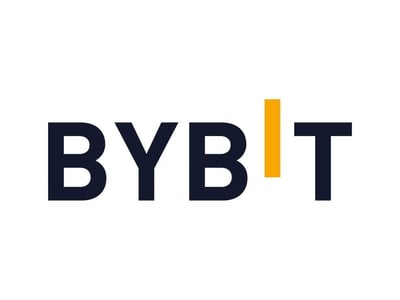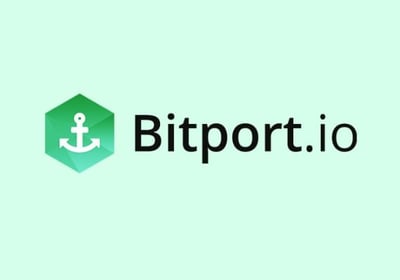Review
Learn more about Ethereum.
Ethereum Review
When investing in virtual currency, you need to do your research. We provide you with reviews of each world top cryptocurrency out there, so that you can find the best crypto coins to invest in for you. This is a review of Ethereum.
Introduction
Ethereum is – and has been for some time – he second biggest cryptocurrency in the world. There is even a movement called The Flippening showing how Ethereum has surpassed Bitcoin on certain fronts and still is far behind on other fronts. In terms of market capitalization, Bitcoin is at the time of first writing this review approximately four times smaller than Bitcoin (Bitcoin’s market cap of USD 120.6 billion compared to Ethereum’s market cap of USD 29.2 billion).
Ethereum’s systems enable independent programmers to generate their own applications, using them on a completely decentralized blockchain network. Like all blockchain applications, its major advantages include the amplified privacy and individual power.
What is a DAO?
In order to explain what gave birth to Ethereum, we must first explain what a “DAO” is. One of the most interesting concepts in the world of cypto is the idea of a decentralized autonomous organization (a “DAO”). Here’s a concise explanation of what a DAO is precisely, what they do, why they exist, and what they are able of.
A DAO is an exceptional organizational scheme in that it aims to work without much tinkering. DAO is an organization that can imitate a large number of the similar functions of a conventional corporation or business. However, the difference is that it does so without becoming bogged down in bureaucracy from committee governance or similar.
Cutting the human intermediaries out of the operation seems a bit eccentric to most people. That is also why the way a DAO works is so hard to comprehend. A DAO can, theoretically, run itself without any involvement from individuals at all.
So how does a DAO run itself? First and primary, a DAO is an organization that uses so-called “smart contracts”. The rules of behavior programmed into computer programs, to govern itself. What this means is that there’s not anyone “in charge” of a DAO in the conventional sense. However, a more mundane company a DAO operates through smart contracts without human intervention.
It really does not mean that a DAO cannot change its behavior. Members of a particular DAO have the capability to propose changes to the organization’s blockchain. However, with adequate consensus, the rest of the members can then take up those changes. Otherwise, if the rest of the members reject the changes, the DAO’s governance remains unchanged.
The DAO hack – Ethereum as of today is born
On June 18, 2016, a hacker attacked the DAO smart contracts and was able to steal 3.6M Ethers, worth approximately $50 million at the time. This shocked the community and cause the price of Ether to drop from $20 to $11.
After the hack, the community quickly came together to decide on a fix. The large majority agreed to hard fork the Ethereum blockchain, which would undo the hack and return the stolen Ether. However, there was a minority group of people who believed the hack was due to the incompetence of the DAO developers. This group also thought that the blockchain shouldn’t be altered.
The majority went on to create the Ethereum hard fork (Ethereum as of today) and the remaining blockchain with the DAO hack is now known as Ethereum Classic.
Functionality – How does it work?
Ethereum gets its power from the Ethereum Virtual Machine (EVM). The EVM is a software on the Ethereum network. This “machine” is what we call “Turin complete”. Turing completeness essentially means that something can be used to simulate any Turing machine. We are not overly familiar with computability theory, but we know that Turing completeness is a stamp of quality in this context. The EVM executes a script in the associated network of computers. This script makes it possible to execute and store a wide variety of things, most importantly smart contracts. It is also this system that permits developers to build their own applications on top of the system.
The following are Ethereum’s core values:
- Simplicity – The protocol should be as efficient as possible, even if it has negative implications on data storage or time inefficiencies/speed.
- Universality – An internal Turing-complete scripting is provided (language that a developer can use to program any smart contract or transaction type).
- Modularity – Ethereum protocol must always aim to be as modular and separable as possible.
- Agility – One must always be ready to adapt the protocol if it is necessary for improvement, scalability or security.
- Non-Discrimination/Non-Censorship – The protocol should not restrict or prevent specific categories of usage.
Benefits of Ethereum (“Pros”)
The benefits of Ethereum not only as a blockchain-based platform itself but also compared to other blockchain-based platforms includes:
- Immutability – A third party cannot make any changes to data.
- Corruption/Tamper Proof – Censorship is unfeasible with the PoW consensus of the vast and decentralized network agreeing on its global state.
- Security – The combination of the PoW consensus, cryptographic techniques used in the transaction model, and lack of a central point of failure protects the network against hacking and manipulation.
- No Downtime – Applications, smart contracts, organizations, etc all running on the Ethereum blockchain run continously. You can’t turn them off.
Disadvantages of Ethereum (“Cons”)
As a Turing-complete platform, Ethereum is susceptible to vulnerabilities that can be exploited through the complexity of the primary programming language used in smart contracts, Solidity. Smart contract security has become a major concern and the DAO hack (mentioned above) triggered concerns of the long-term viability of smart contracts moving forward.
Ethereum also places a large focus on Security and Decentralization over Scalability. While scalability solutions are in the works and on the horizon, the low-throughput capacity and high gas costs for Ethereum at the moment make it inconvenient for mainstream users looking for free use of applications that they are accustomed too, as well as for developers building applications, where gas costs have become prohibitively high in some instances.
***


 Hassan Maishera
Hassan Maishera

 Nikolas Sargeant
Nikolas Sargeant












